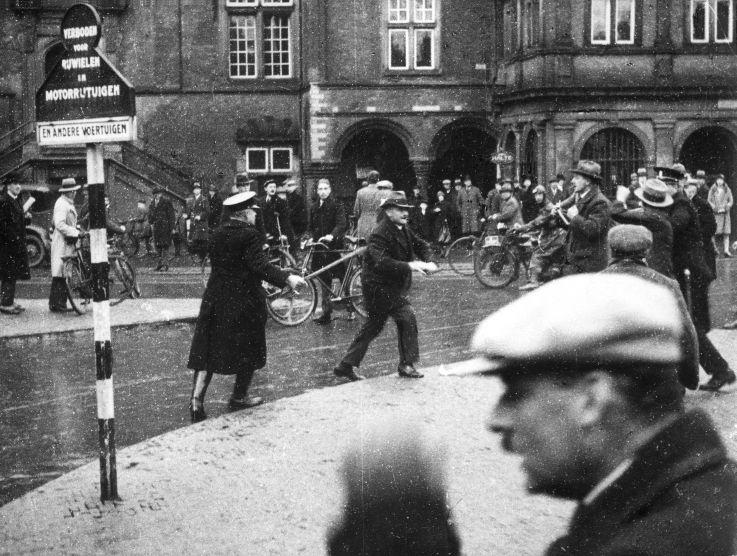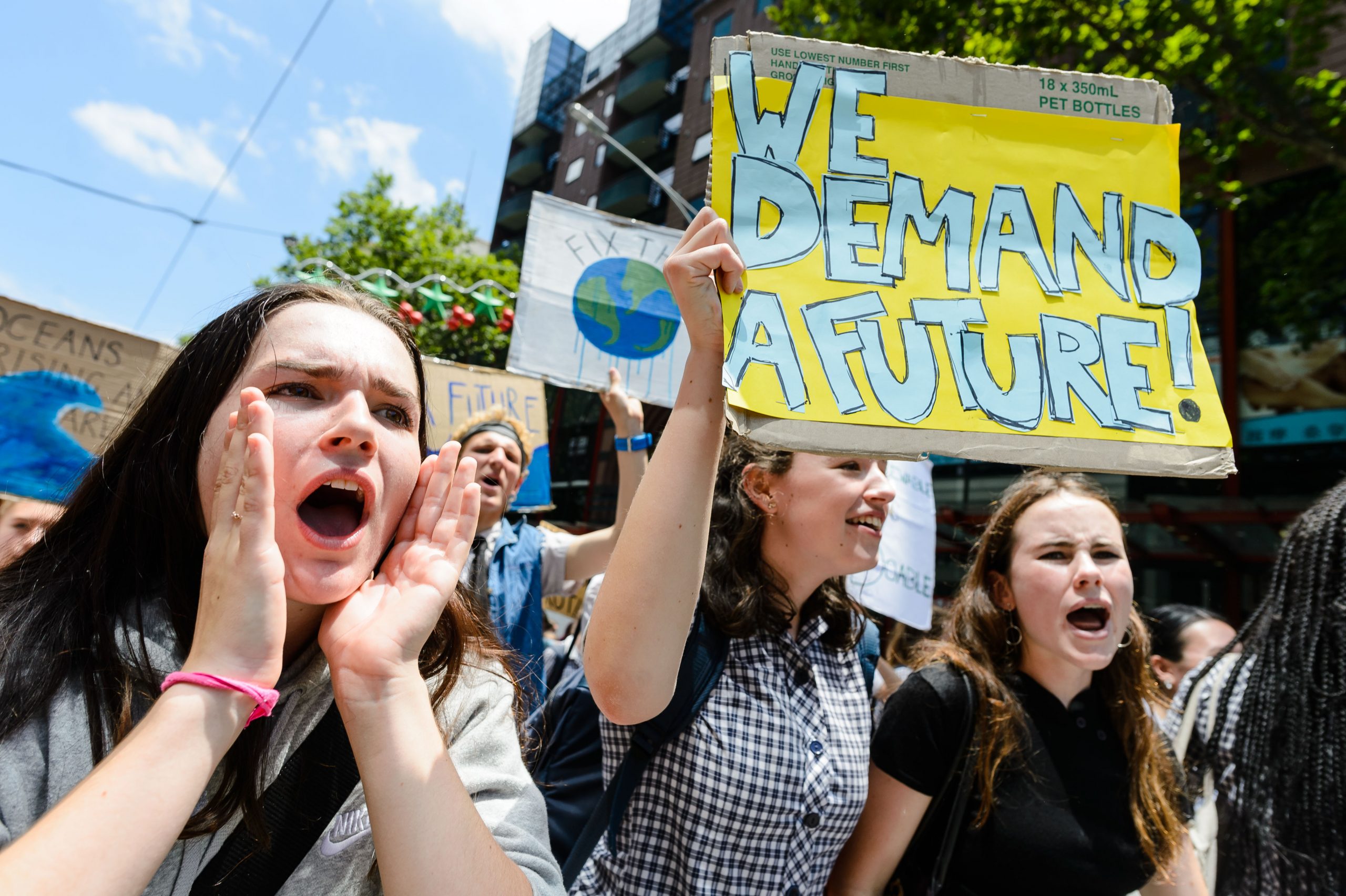Candice Delmas is an Assistant Professor of Philosophy and Political Science at Northeastern University, and the Associate Director of the Politics, Philosophy, and Economics Program. She will be a 2019-2020 Humanities Center Fellow and served as a Dworkin-Balzan Fellow at New York University School of Law in 2016-2017. She works in applied ethics, social and political philosophy, and philosophy of law. NUPR met with Professor Delmas to discuss her most recent book, A Duty to Resist: When Disobedience Should Be Uncivil.[1]
Whereas the philosophical debate usually centers on political obligation (the moral duty to obey the law) and on the circumstances under which engaging in civil disobedience is sometimes permissible, Delmas’ book argues that the very grounds supporting a duty to obey the law—grounds such as the natural duty of justice, the principle of fairness, and the Samaritan duty—also impose obligations of resistance under unjust social conditions. Delmas therefore expands political obligation to include a duty to resist injustice and shows that under certain real-world conditions, this duty to resist demands principled disobedience. Against the mainstream in public, legal, and philosophical discourse, she argues that such disobedience need not always be civil. Sometimes, covert, violent, evasive, or offensive acts of lawbreaking can be justified, even required. Uncivil disobedience, Delmas shows, can do things that civil disobedience cannot do, such as calling out the bluff of societies that profess to treat everyone as an equal while effectively excluding some members from the realm of mutual concern.
NUPR: Your book begins by pointing out limitations of dominant perceptions of civil disobedience, and their role in “warp[ing] public understanding of liberation struggles” (34). Can you speak more to this issue?
CD: What is the ordinary understanding of civil disobedience? It is an unlawful protest designed to draw attention to some injustice and constrained in various, demanding ways in a democratic state (where some people think that because you can always protest lawfully, you should in fact never turn to civil disobedience, or else you need to have “exhausted” the available legal means). I call the set of constraints the “civil disobedience playbook” and it is frequently used to judge current social movements’ tactics.
First on the civil disobedience playbook, the lawbreaking act should be open and visible to all—the point, after all, is to communicate a message to the public; some theorists even demand agents give advance notice to authorities to prevent major disruption. Second, it has to be nonviolent. Nonviolence overwhelmingly in Western neo-capitalist societies extends beyond persons to include property, both private and public. Third, the agent ought to always accept punishment. This is important not only because it signals sincerity and one’s commitment to the cause, but also because it’s supposed to reconcile one’s breach of law with one’s respect for law. That’s an important aspect for a lot of theorists: that agents must willingly endure jail or whatever comes to them as a result of their lawbreaking, to express their endorsement of the legal system’s legitimacy. There is a fourth mark of civility which is not always well-underlined by theorists, but which I think is very visible in the way we judge current protests: decorum, or the idea of abiding by socially accepted norms in one’s conduct, especially by acting respectfully towards others.
Because this set of constraints on civil disobedience is used as a benchmark to judge current social movements’ tactics, I think it often has the effect of deterring and delegitimizing all kinds of dissent. The calls for civility are, in a way, just policing protest and dissent.
NUPR: What issues do you see with recent, more inclusive frameworks to understanding civil disobedience, even when many include portions of your own argument?
CD: Many critics have noted that standard liberal accounts of civil disobedience, like the one John Rawls offered, are narrow because of those constraints. In response, some theorists say that we need to understand civil disobedience much more broadly as including radical, disruptive, violent, and defiant acts (think Greenpeace, Ferguson, or Standing Rock) because they are very much in the spirit of civil disobedience: fighting for democracy, expressing democratic popular sovereignty, or radically disrupting the status quo. These theorists see a much broader, more inclusive concept of civil disobedience as what we need today in order to be open to the justification of all these kinds of protests that seem not to fit the narrow understanding of the civil disobedience playbook.
I am actually sympathetic with these efforts, because if you can persuade some people that these radical, disruptive protests are acts of civil disobedience, then you have won part of the fight. Why? Because to call a disobedient act civil is to highlight the actor’s conscientious motivations and the communicative nature of the act; it’s to begin the work of legitimization. It’s great if you can do that, but I think it doesn’t work because it’s obvious for anyone who’s trying to compare iconic civil disobedience campaigns like the “whites only” lunch counter sit-ins with disruptive actions like Anonymous’ distributed-denial-of-service attacks or Greenpeace’s sabotage operations, that the latter are a different beast altogether.
My view is that these broad and inclusive accounts lump together distinct phenomena that should be kept distinct. I also think that to some extent, these accounts fail to reflect activists’ self-understanding. For instance, the militant suffragettes of the early 20th century described themselves as “soldiers” waging a “civil war” against the state. Their tactics were uncivil—sometimes covert, violent, evasive, and defiant—and they deliberately failed to display the marks of civility.
NUPR: What is the significance of a deliberate departure from the traditional civil disobedience playbook? Why do we have to conceptualize multiple categories of protests?
CD: Pluralizing the categories of principled disobedience is a good idea because each type of protest is going to call for a different lens for assessing it. One example is government whistleblowing. A lot of people who were sympathetic to Snowden’s leaks of classified information that exposed the NSA’s massive domestic and international surveillance programs called it “civil disobedience.” I think that government whistleblowing, to the contrary, is a very distinct type of phenomenon that needs its own approach for justification. Stealing and leaking classified information is a serious kind of thing. It involves agents taking the law into their own hands, unilaterally reversing state secrets, and posing risks to national security in the process. I conceive of it as “political vigilantism.” Government whistleblowing can be justified, but you need to look at it on its own terms.[2]
I would say the same thing about uncivil protests that are offensive but nonviolent and public; they need their own framework of assessment. I think that uncivil protests can do something that civil disobedience cannot do, which is to call out the deceptions of liberal civility, where liberal civility is this idea that we’re all free and equal, we respect each other and we show it by speaking to each other in measured tones, and we’re all treated as equals before the law and so on. We are all political members of the same community, tied by these bonds of civic friendship and reciprocity. Well, I think that by disobeying uncivilly, you may be able to point out the deception or false promises of these civic bonds—the fact that they fail to extend to everyone. Uncivil disobedience can mark political exclusion and social marginalization in a spectacular way, where a civil protest could not.
These are some of the reasons why I think it’s important to pluralize the subsets of principled disobedience and think about them separately.
NUPR: Can uncivil disobedience can be justified even if it’s not a necessarily communicative act?
CD: I just talked about the kinds of things uncivil disobedience can communicate, but I think there’s a really important category of principled disobedience that is not communicative and so clearly does not abide by the civil disobedience playbook. Not every act of principled disobedience is designed to reform the law. Yet uncivil disobedience can achieve very important things and sometimes better satisfy moral and political demands than either compliance with law or civil disobedience.
I look for instance at Sanctuary activism: the illegal provision of legal aid, shelter, clothing, and transportation to irregular migrants. That’s something that is done necessarily covertly and evasively (without seeking legal sanctions), but that can be justified on the basis of moral duties like the Samaritan duty, which demands rescuing those in dire need, or the natural duty of justice, which requires supporting just institutions as well as frustrating ongoing wrongs. They consist of individual acts of humanitarian aid and rescue, in a context of structural injustice that gives rise to various perils for migrants.
Direct rescue operations by animal activists, Sanctuary work, or what is now called the new underground railroad, through which people help irregular migrants reach Canada—these are kinds of humanitarian work that are not well conceived of as civil disobedience, and yet they are clearly principled and justifiable.
NUPR: Is all uncivil disobedience justifiable? If not, where is the line between justifiable and unjustifiable uncivil disobedience?
CD: Absolutely not. There are a lot of impermissible acts that fall under uncivil disobedience. That’s why in some ways, calling an act uncivil disobedience cannot begin to legitimize it in the way that calling it civil disobedience can. Much uncivil disobedience is impermissible. For instance, the Ku Klux Klan engaged in unjustified yet principled intimidation of and acts of terror against Blacks for the sake of white supremacy. Their violent uncivil disobedience is obviously abhorrent. Meanwhile, the use of self-defensive violence by African-Americans under Jim Crow can be justified.
The line between justified and unjustified uncivil disobedience will be drawn differently depending on the type of action (storming a restaurant and, say, leaking classified information involve different justificatory accounts) and the particular socio-political context. The disobedient agent must pursue a worthwhile, justifiable cause, through means that are reasonably related to it. So we need to look at the context and evaluate the severity of the injustice, how that shapes the goal, and the method chosen. The latter must be proportional or reasonably related to the goal. That doesn’t necessarily mean as minimal as possible. If you’re engaging in a guerilla theater protest, for instance, you’re not looking for minimal disruption. You’re looking for maximum spectacular effect. But if you’re resorting to violence then “necessity” and “proportionality” are the right criteria (as in just war theory).
It’s always important to protect people’s fundamental interests in life and bodily integrity.
NUPR: Your book appears to shy away from violence, as justifying violence can be a sensitive issue. Can violence be justified in your framework and conception?
CD: I’m mainly interested in violence undertaken in self-defense or defense of others in the book. Vigilante groups developed under Jim Crow because states and local police forces were utterly unwilling to help protect the basic rights to life and bodily integrity of African-American citizens. They formed groups that patrolled neighborhood and flexed their muscles, often in violation of gun display laws, sending the message that white supremacist violence would be met with violence.
And it worked, and these groups also provided security as bodyguards to civil rights leaders and organizers. This collective self-defensive violence was justified given the institutional context—southern states’ unwillingness to do what it takes to protect people from harm. It’s important to note that in many parts of the South, police were not just standing back idly and doing nothing, but often also participating in lynching and other racially motivated terror acts.
So many can accept those forms of self-defense, but then ask what about punching Nazis? No, I do not think it’s justified. I’m all about incivility, but not all about violence! I think you can highlight political dangers through spectacular, radical, and disruptive protests that are inventive and tap into interesting political imaginary, without harming people.
NUPR: The traditional civil disobedience playbook holds that civil disobedience works in a near just society. Do you consider America a near just society?
CD: In the book, my approach is to say that even if you think that the U.S. of today is a legitimate, near just society, each of several philosophical arguments for the moral duty to obey the law actually supports a duty to resist injustice, including through principled—civil and uncivil—disobedience. I wanted the argument to work even for those who attribute a solid level of legitimacy to Western liberal societies, which are admittedly better than many of the alternatives. That being said, I believe that the injustices that mar American society at many levels (from police brutality to mass incarceration and from labor injustice to immigration restrictions) make the diagnosis of justice and legitimacy implausible. Matters of racial, sexual, and economic injustice, and America’s treatment of non-members (including undocumented immigrants and migrants at the borders, as well as citizens of countries with which America is at war) seriously taint the government’s claims to legitimacy.
NUPR: All of these factors push us toward an “imperfect duty” to resist. What does that look like in application, and what role can that play in America and around the world?
CD: To say that a duty is imperfect is to say that the agent has discretion as to how to discharge that duty. We have a strong, weighty duty to resist injustice, but what it is we have to do to fulfill our responsibility depends on our talents, opportunities, particular social position, and how we can relate to others in ways that will promote justice and awareness and so on. There’s not one thing that everyone ought to do all the time; we have lives to lead and not all of our lives can always be about resisting injustice.
That being said, how we’re going to responsibly discharge our duty to resist injustice involves something like critical self-reflection, due diligence in our reasoning about the social realities around us, and being well-informed about the world, and empathetic toward others.
I also think that as we go about these tasks of being informed, of being critical thinkers and seeing our moral blind spots and our predispositions that may contribute to some of the social problems, it’s really important that we talk to each other all the time. We must take this task of resisting injustice as the collective task that it necessarily is. So it isn’t a question of keeping your hands clean; it’s doing your part in an endeavor that we undertake together, as we try to repair and improve the social and political fabric of our lives. And we’ll each satisfy our political obligations better, more successfully, by working with other people. That’s still a little abstract, but it really matters to get together with other people and organize into social movements. Which social movement you join depends on your own inclinations and that’s fine. But we all have much work ahead.
[1] Delmas, Candice. “A Duty to Resist: When Disobedience Should Be Uncivil.” Oxford University Press. 2018.
[2] Delmas, Candice. “That Lonesome Whistle.” Boston Review. June 14, 2016. http://bostonreview.net/editors-picks-world-us/candice-delmas-lonesome-whistle.



